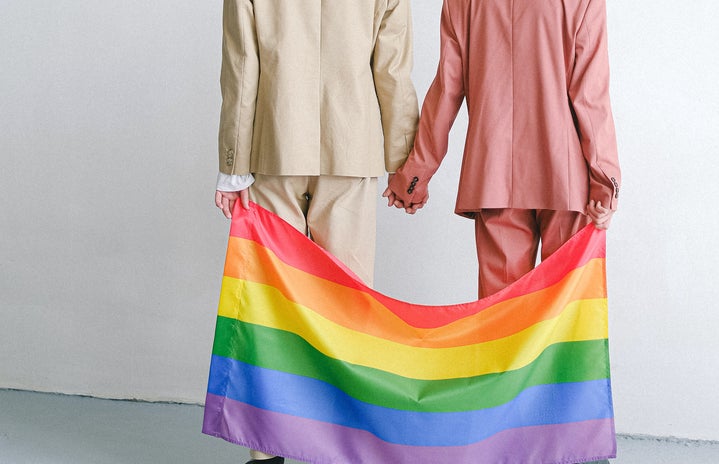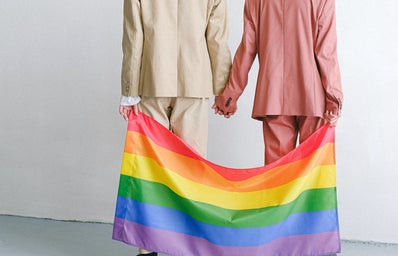A review of Daryll W. Bullock’s analysis into the lives of LGBTQ+ musicians during the 20th century.
People who know me personally will definitely know that all it takes is a little rainbow flag on an object to make me want to buy it instantly. You can imagine, therefore, that it would be no surprise that this book, in all its pride flagged glory, caught my eye instantly. ‘David Bowie Made Me Gay’ is one of the first attempts in recording and creating a comprehensive history of music written by and for queer people, and how this has transpired into the music that we can afford to enjoy and celebrate today. I was intrigued to explore how the musical culture of the 20th century was another way in which queer people were to fight for the ability to express themselves in an environment so hostile to them.
One thing that immediately struck out to me as I approached the contents page of this book was the sheer range of people within the industry that Bullock has been able to account for in his writing. Not only does he cover music hall performers such as Fred Barnes (1885-1938), but he also covers prominent musicians from the blues such as Ma Rainey (1886-1939), as well as more familiar pop culture figures like Liberace (1919-1987). Bullock also explores the individuals behind-the-scenes of the industry, including producers, songwriters, and music executives, which was fascinating to me as it allowed a depth of queer musical history that I don’t believe has been looked into before. Although I did feel as if there was a tendency in the writing to shift rapidly between the people he brings up in his work with varied degrees of importance given to their lives, which at times made it confusing to follow. Moreover, despite David Bowie comprising the title and his influence making up part of the introduction, staple LGBT icons like himself are merely footnotes in this book. Although this may be because we do know quite a bit about these musicians already, it would have been nice to perhaps see the wider influences that these big names had on other queer musicians, if not by simply giving them the ability to feel more confident within their own sexualities.
What was particularly fascinating to me was how many artists and industry-folks I didn’t recognise. We’re always told of the greats, such as Freddie Mercury and Elton John, which (at least to me) alluded that the existence of queer musicians was often scarce. Bullock’s novel flips this narrative on its head and, in a way, brings about a sense of undoubted comfort to queer individuals such as myself – being gay was not some fad born out of glam rock and flamboyant presentation, it was real even before the 70s and continues to be real today.
Moreover, this book also answers some fundamental questions that are integral to queer history – how did drag really begin? What was the impact of the disco scene on the LGBT community? These are just some of the issues that Bullock tackles and provides with a narrative that is both engaging and highly informative. Although it is no secret that the Stonewall riots, for example, were crucial in politicising the gay rights movement, it is often only the contributions of politically charged activists that we observe, rather than the equally important contributions that popular culture made in fuelling the fire ignited at Stonewall. It can sometimes be easy to view the liberation of the community through a solely political lens, which is why this book is a great way of helping to add greater context and perspectives.
Overall, David Bowie Made Me Gay was an exciting read, and a great divulsion into the hidden gems of the music industry, although to some extent, Bullock’s inability to step outside the labels of L G B and T (with a disproportionate focus on the first two) leaves slightly more to be desired. Nevertheless, it is a brilliant first start in codifying the large swathes of queer musical histories that exist for this century, and is a book that can be enjoyed by queer history and music lovers alike.


